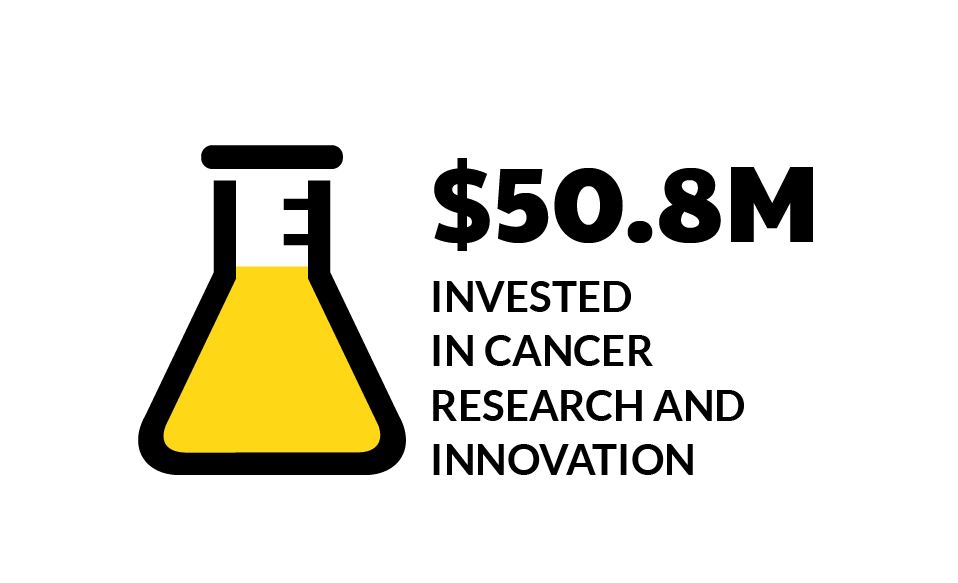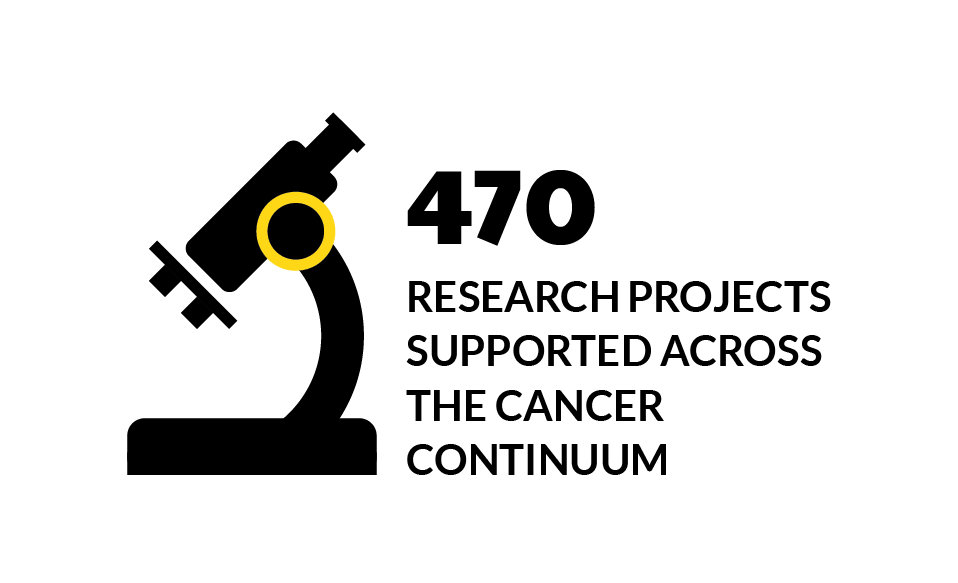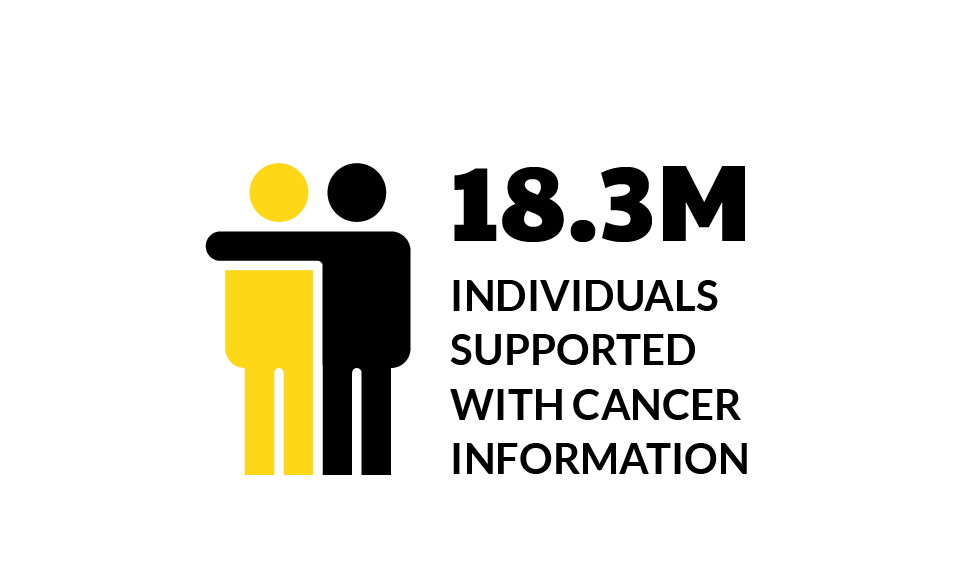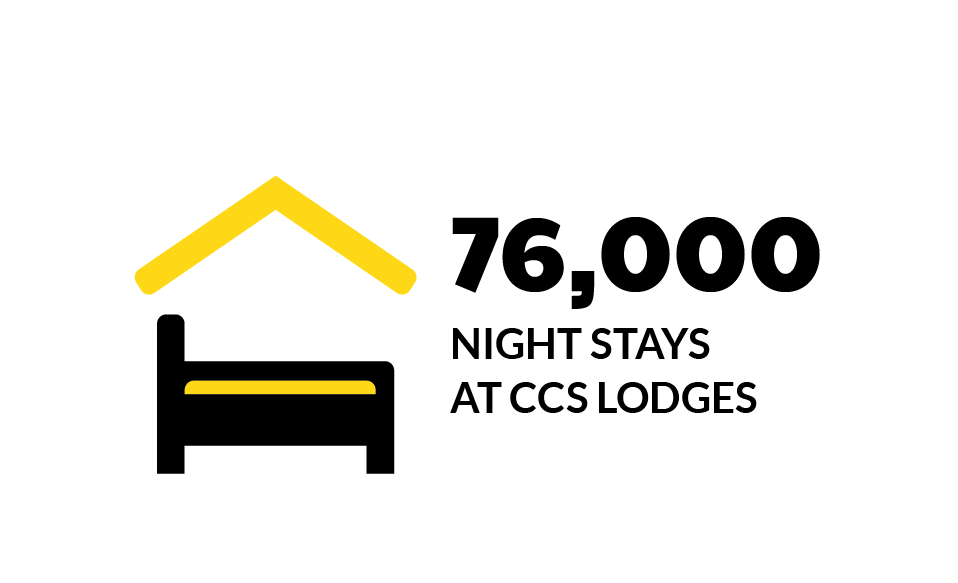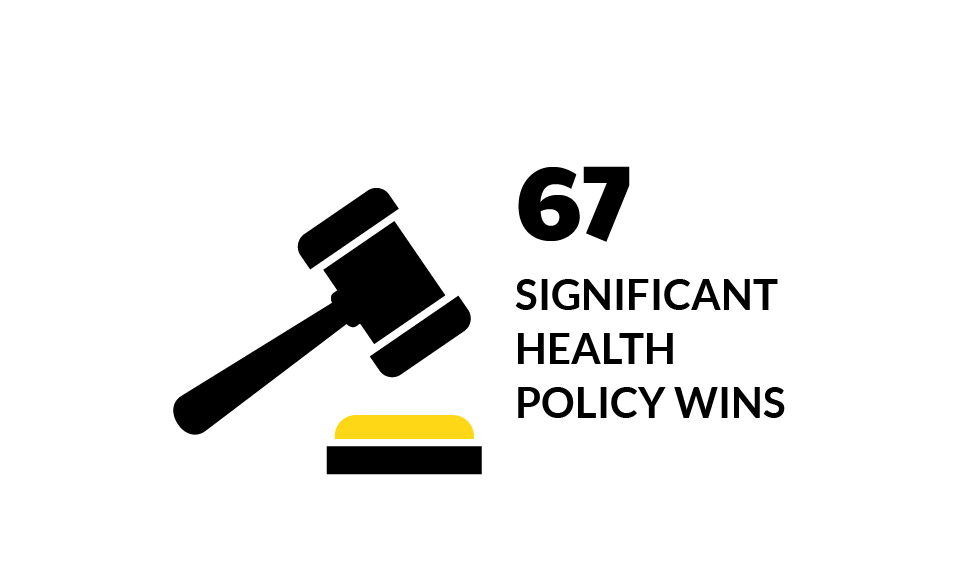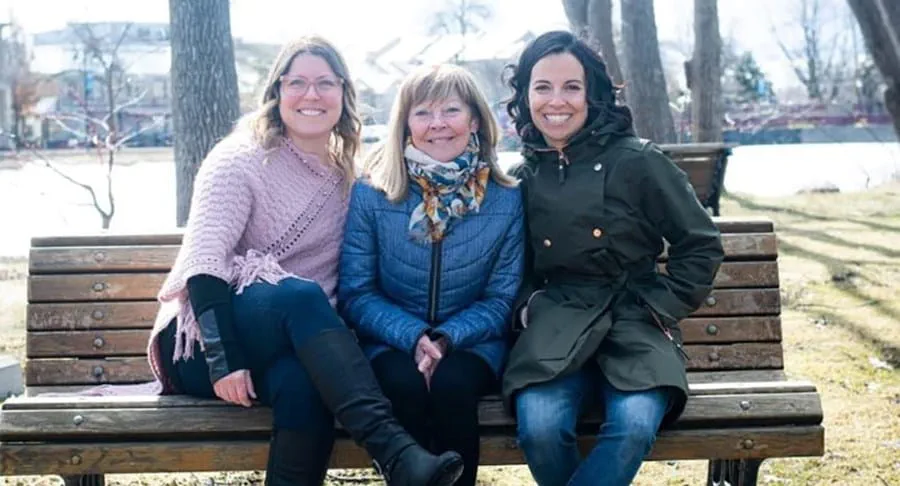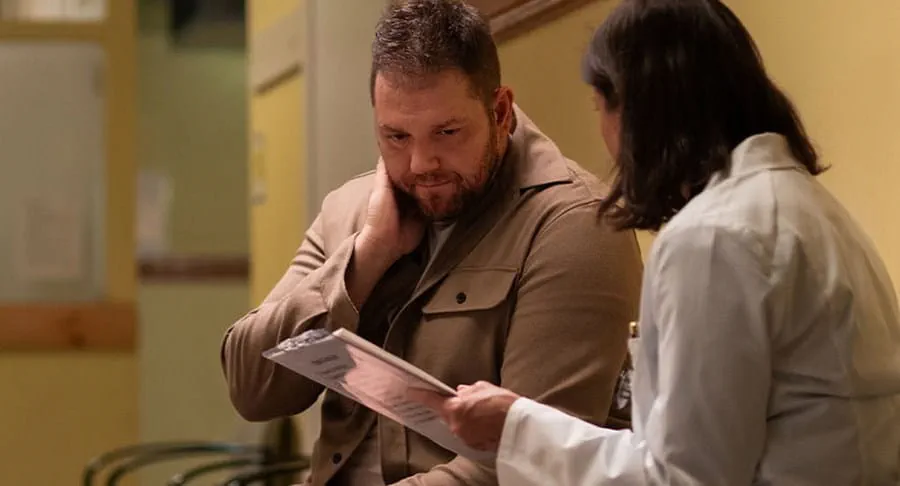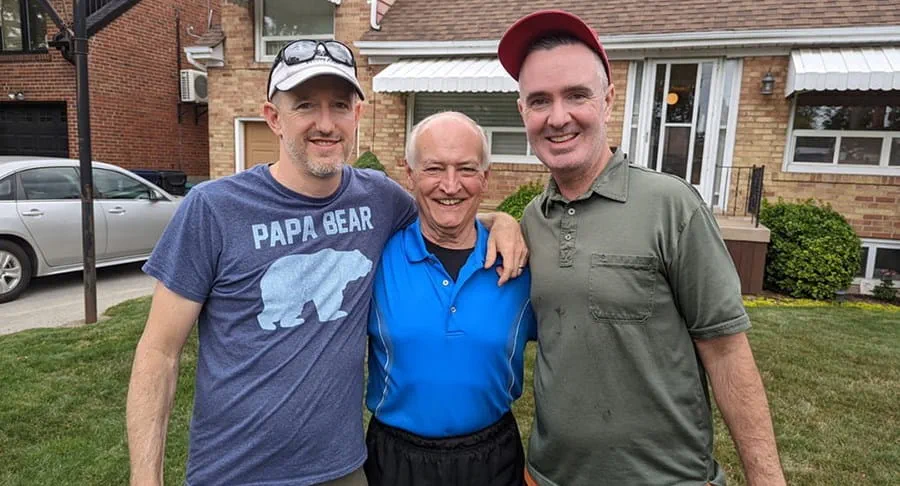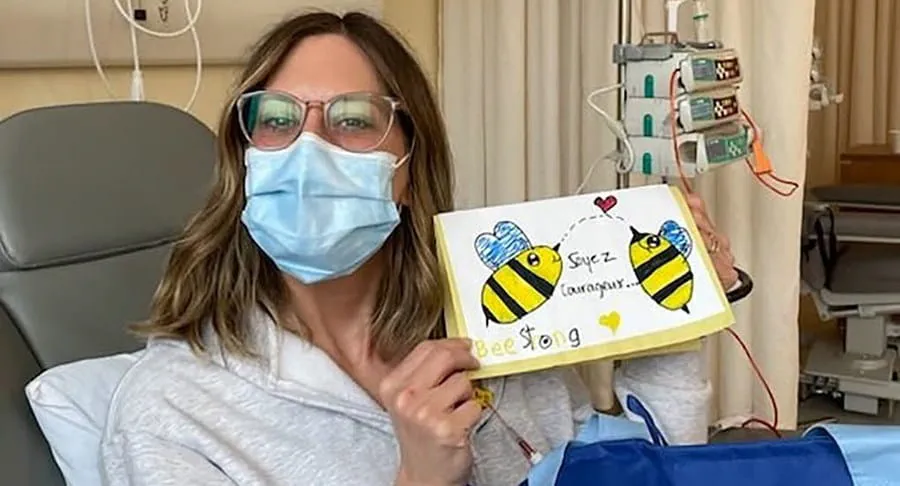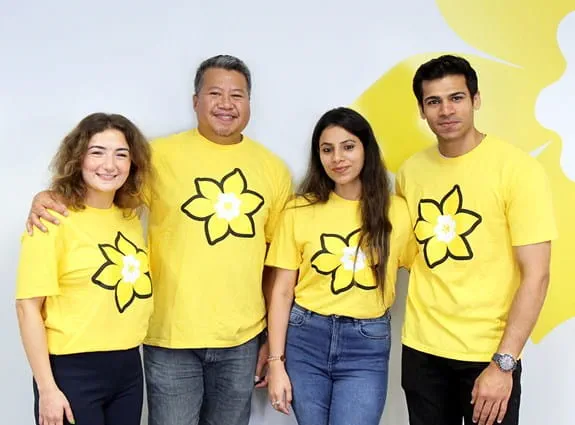
Taking on cancer together
It takes a society
We’re proud to share the Canadian Cancer Society 2024/25 Impact Report, a celebration of the progress we made together to save and improve the lives of people affected by cancer.
Last year, thanks to the generosity of our donors, volunteers and partners, we increased our investment in our mission. We fuelled life-saving research and innovation programs, raised our collective voices to drive change on cancer-related issues and provided compassionate and practical support to people facing cancer and their loved ones.
With your support, we published a first-of-its-kind report on the cost of cancer in Canada and called on government to help reduce those costs. We funded much-needed research to improve survival and quality of life for people with metastatic cancers, the leading cause of cancer death. And we raised awareness about screening and pushed for improvements to screening programs across Canada to help find more cancers early, when they are easier to treat.
Together, we made important strides toward transforming the future of cancer. Every step was made possible because of you – our incredible community of supporters.
Thank you for your generosity and your unwavering commitment to making a lasting difference.
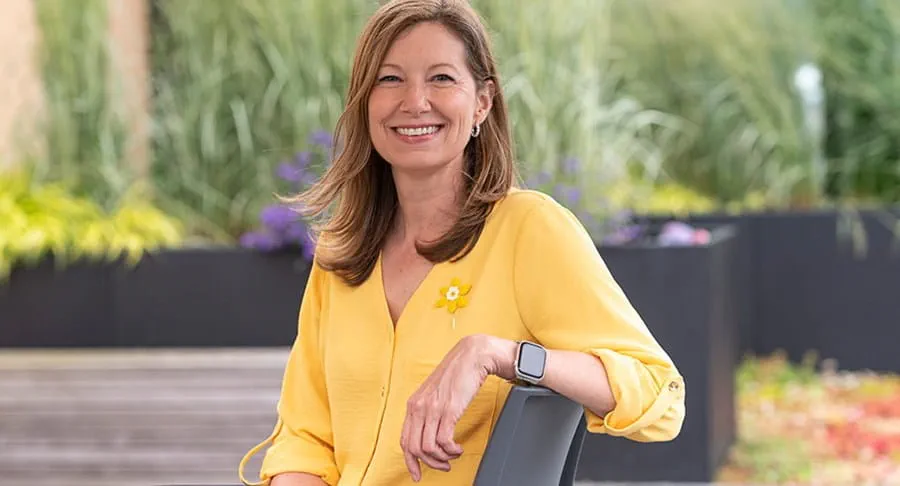
Andrea Seale
Chief Executive Officer
Canadian Cancer Society
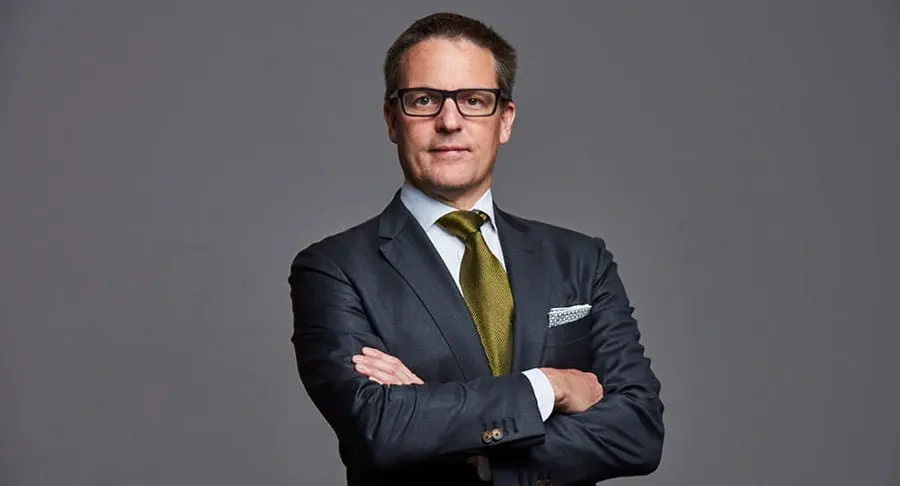
Christopher Wein
Board Chair
Canadian Cancer Society
A snapshot of our impact
Together, we are helping the 2 in 5 people in Canada who will be diagnosed with cancer in their lifetime. In 2024/25, an incredible 563,000 donors, 22,000 volunteers, and 141,000 event participants and organizations helped us to invest $124.2 million in our mission.
